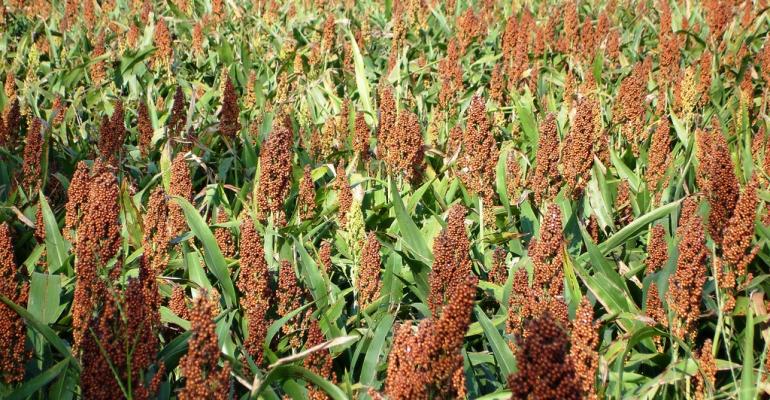October 28, 2019

Last spring, I wrote about the sorghum industry’s plans on sustainability. Specifically, representatives from the Sorghum Checkoff and National Sorghum Producers sat down in Dallas to discuss building a sustainability roadmap for the sorghum industry.
Not only did that meeting produce a suite of resources for sorghum farmers and supply chain participants — it also led the Sorghum Checkoff to make the strategic decision to hire a sustainability director, as well. We’ll spend the next several months rolling out this roadmap and onboarding new staff members devoted to sustainability, and we hope to have an official launch at Commodity Classic.
In the meantime, in this column, I want to focus on an ancillary issue (much as I did last spring, when I devoted two columns to quantitative and qualitative sustainability issues for farmers to keep in mind).
For long-time readers and folks who have followed sorghum industry issues over the past few years, you know carbon prices have significant indirect impacts on the price of sorghum given the amount of High Plains ethanol sold into the low carbon fuel market in California.
You also know 80% of farming emissions (which themselves account for 20% to 30% of the carbon footprint of a gallon of ethanol) are driven by nitrogen application. But were you aware of the growing connection between carbon intensity and farm policy?
For the first time ever, the 2014 Farm Bill included the phrase “soil health.” This was a significant win for conservation-minded farmers, and many in agriculture were optimistic about the opportunities this new policy emphasis would create. However, few could have expected the degree to which these opportunities would emerge, and by the time the 2018 Farm Bill was signed into law, the final text included the phrase “soil health” a whopping 47 times.
So, how does soil health relate to carbon intensity? To put it simply, better soil health means lower carbon intensity (and thus more value in low carbon fuel markets).
Agricultural advocates like me have long heralded U.S. farmers as the original environmentalists. Why? Because our farmers take care of their land hoping it will take care of them. Taking care of anything will contribute positively to its health, and land is no different. Think about it. Leaving more residue behind requires less carbon-intensive tillage in addition to building soil carbon — a key tenet of soil health.
Residue also means lower fertilizer requirements in certain cases and, given fertilizer production is a highly carbon-intensive activity, lowering this need provides significant savings.
In short, the same activities that contribute to soil health in conservation settings lower carbon intensity according to global climate change models. This means potential for true win-win collaborations between environmental groups and farmers — and neither side must compromise because their values on this issue are actually perfectly aligned. Pretty exciting stuff!
Recognizing this important link between conservation and carbon intensity, in addition to our other sustainability activities, we partnered with the USDA Natural Resource Conservation Service to collect and store information on farm practices.
As a part of this partnership, we will work closely with Kansas NRCS staff over the next couple years to build and then populate a database that can be used to help sorghum farmers better understand their environmental footprints and also tap into opportunities created by the 2018 Farm Bill’s focus on soil health.
Developing a sustainability strategy that strikes an appropriate balance between highlighting the amazing work sorghum farmers are already doing and continuing to find ways to improve hasn’t been easy, but I think we�’re finally getting close. Stay tuned. The next couple years should be fun.
Duff is a strategic business director for National Sorghum Producers. He can be reached by email at [email protected], or find him on Twitter @sorghumduff.
About the Author(s)
You May Also Like






